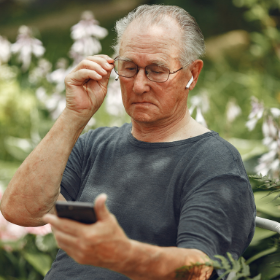Watching the Manchester rain hit against the window I was thinking about what my blog this month should focus on. Last month I’ve been feeling (and still am..) incredibly frustrated about the ODA cuts to existing and already funded international research. Whilst this is still devastating, it made me think more about how the pandemic has changed research networking in the past year.
Networking is one of the core elements of our job. And for most parts it can be incredibly fun speaking to people sharing their interesting research and learning more from them. But let’s not forget, networking, and research for that matter, is not just about speaking to or working with fellow researchers. That would be incredibly boring to be honest, at least for me, as we all come from the same research bubble. No, networking is also about speaking to and collaborating with people ‘in the field’ so to say. For me, that involves charities and service providers, such as TIDE Carers [1] or House of Memories [2], clinicians, and people affected by dementia. Fair to say I don’t class this as networking (which can feel quite formal), but as genuinely enjoyable and one of the nicest parts about my work.
Usually, we would meet people at conferences, workshops, or seminars, which offer those opportunities of networking and talking about work (or other things) outside of the formality of those meetings. These opportunities are even more important when the people you want to or are working with already live in different countries.
Over the past year, our ability to network and engage with fellow researchers and collaborators has drastically changed. In some ways positively. We are able to set up meetings with people in different time zones pretty quickly these days, and many carers and charities I work with are fully equipped and able to join remote meetings. Obviously, there is a huge underpinning inequality here about those carers and people with dementia who can’t access the internet for various reasons, but that’s a topic for another blog(s)! When I think back to pre-pandemic times, holding a skype meeting with collaborators in Colombia was a rarity! Now, I meet my collaborators from all over the globe regularly, via Zoom, Teams (not necessarily skype).
If you want a safe space to exclusively chat to others like you, Dementia Researcher has a supportive Whatsapp Community, drop into the lobby here [3], and introduce yourself to be give access to the group

Technology can help keep you connected to the communities you’re working with, and colleagues. But it can also be a barrier for those not connected.
But how do we meet new collaborators as researchers in a socially distanced world? I’ve always been an avid user of social media (twitter, Linked In) for discussing, sharing, learning, and networking. What I found in the past year is that many more academics and people I work with in general (and participants!) are using social media and are often just a tweet away. It’s the modern, constantly accessible, platform for meeting and following new interesting people in our field. That is certainly a positive.
There are obviously negatives as well. As I just mentioned, some people struggle accessing the internet, and we are excluding those (who most likely have incredibly important stories to share too) from research. What’s more, international research involves shared learning and understanding how for example a dementia care pathway or mental health services work in a different context – different culture, region, and language. By only having remote meetings, we completely miss out on one of the key parts of conducting international research – that learning (and networking) that can only happen when you visit the sites, understand the region and its challenges to care delivery better.
Whilst there has been little positive about the pandemic, I am sure we will take the benefits of remote networking into the post-pandemic world. More importantly though, I can’t wait to travel again and finally get to do all those site visits that have been postponed for far too long now, and enjoy those mid-conference discussions again!
Author

Dr Clarissa Giebel
Dr Clarissa Giebel [4] is a Research Fellow at the University of Liverpool and NIHR ARC North West Coast. She has been working in dementia care research for over 7 years focusing her research on on helping people with dementia live at home independently for longer.